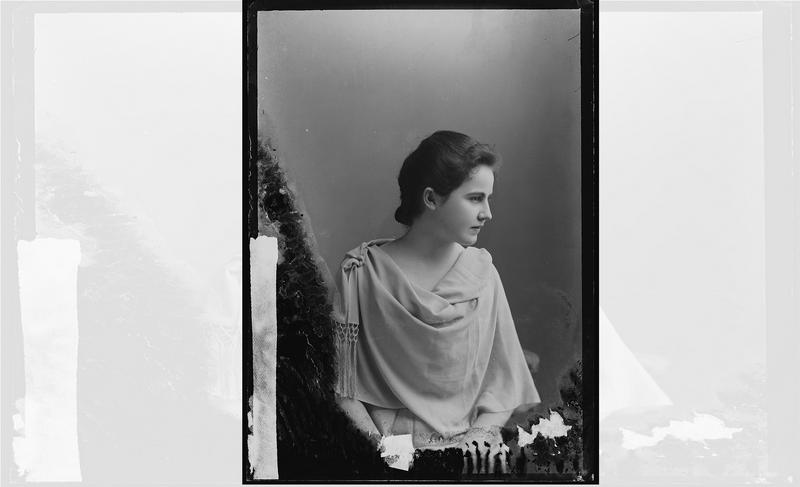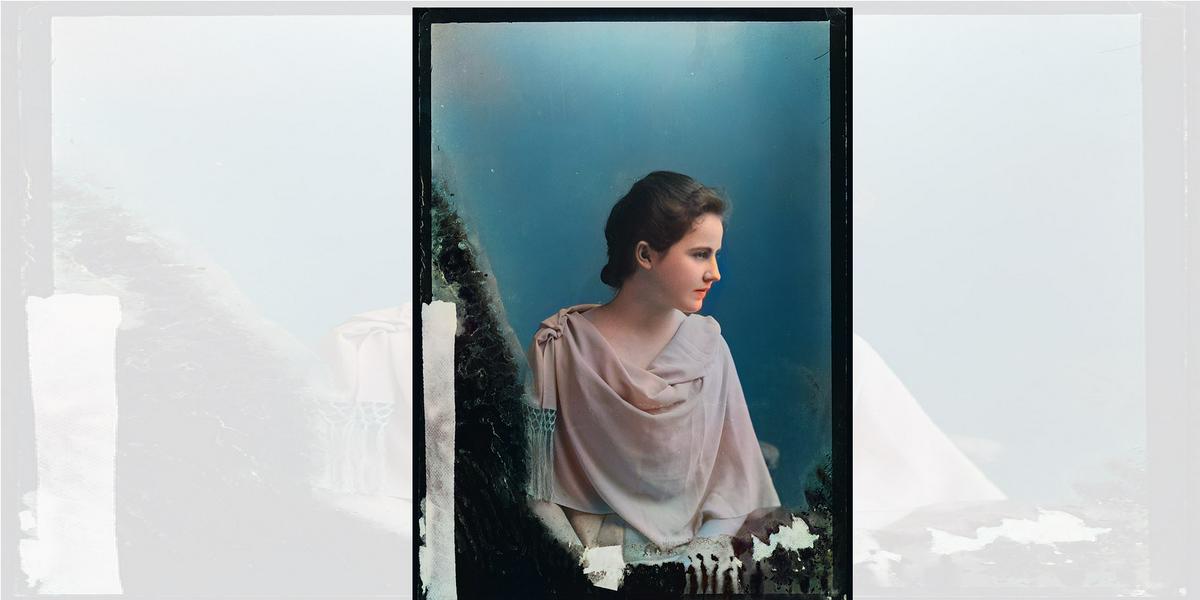January 25, 2022
Edith Bolling, who would later become Edith Wilson, was born on October 15, 1872, in Wytheville, Virginia; she was the daughter of circuit court judge William Holcombe Bolling and a descendant of Pocahontas. Edith had little formal education early on, but she did learn to read and write at home. Her grandmother, Anne Bolling, who had suffered a spinal cord injury, was able to teach her reading, writing, speaking and a hybrid language of French and English. Her father also hired a tutor for her and she occasionally accompanied him on his travels. She did enroll at Martha Washington College at 15, but she left after one semester. Her father then enrolled her at Powell’s School for Girls in Richmond Virginia, but the school closed after her first year there.

She met and married Norman Galt while she was visiting her married sister in Washington D.C. After they were married in 1896, they remained in D.C. until Galt died unexpectedly in 1908. Seven years later, in 1915, she was introduced to President Woodrow Wilson who was recently widowed. Soon after they met, he proposed to her. Unfortunately, there were rumors that Woodrow Wilson had cheated on his wife with Edith, and some suggested Wilson and Edith had killed his wife. Although Wilson suggested Edith back out of the engagement, she simply postponed it until the end of the official year of mourning for Wilson’s wife.
Edith Wilson Was Active During The War

Edith Wilson tried to set an example during World War I, as she observed gasless Sundays, meatless Mondays, and wheatless Wednesdays in support of the rationing effort. She also used sheep to take care of the grass on the White House lawn and then auctioned their wool to benefit the American Red Cross. She was the first First Lady to travel to Europe during her term, traveling with her husband in 1918 and 1919 when he visited the troops and then when he went to the Paris Peace Conference.
Wilson's Stroke Occurred After World War I Ended

When they returned, Woodrow Wilson was going to campaign to get Senate approval of the peace treaty covenant and the League of Nations. However, President Wilson suffered a stroke in October 1919, leaving him partially paralyzed. The U.S. never signed the Treaty of Versailles and did not join the League of Nations.
Edith Wilson Protected Her Husband

The extent of President Wilson’s illness remained hidden from the public. Edith took over many of his duties from the time of his stroke until the end of his term in office. She read through all communications and decided which matters should be presented to him. She was the link between the President and his cabinet, and everything went through her. As she later wrote: "I studied every paper sent from the different Secretaries or Senators and tried to digest and present in tabloid form the things that, despite my vigilance, had to go to the President. I, myself, never made a single decision regarding the disposition of public affairs. The only decision that was mine was what was important and what was not, and the very important decision of when to present matters to my husband." She did have a role in some of what happened though, as she convinced President Wilson to remove Secretary of State Robert Lansing because Lansing had held meetings without either the President or Edith present. She also took offense to a joke which led her to refuse the credentials of an ambassador who had arrived to negotiate regarding the League of Nations. When she asked the ambassador to fire the aide who had made the joke, he refused and left. She helped the President when he filled out paperwork, and sometimes made suggestions or notes. She was also entrusted to encode and decode encrypted messages and became privy to classified information.
After Wilson's Term Ended

History has had a mixed view of her; some have criticized the role she played, claiming that she hampered the President’s effectiveness, and some have argued that even though she did not make critical decisions, she was, in essence, acting as the chief executive until the end of Wilson’s term in 1921. Nonetheless, she managed to protect her husband and, possibly, the presidency.
After President Wilson’s term ended, they retired to their home in Washington D.C. Throughout the final three years of Wilson’s life, Edith continued to care for him. She headed the Woman’s National Democratic Club’s board of governors when it opened in 1924. She was present when Roosevelt asked Congress to declare war after Japan’s attack on Pearl Harbor, and she attended President John F. Kennedy’s inauguration in 1961. She died on December 28, 1961, of congestive heart failure and was buried next to the president at the Washington National Cathedral.
